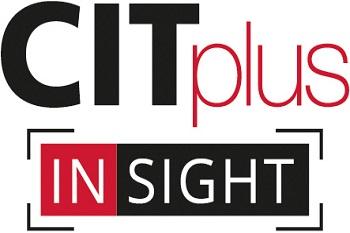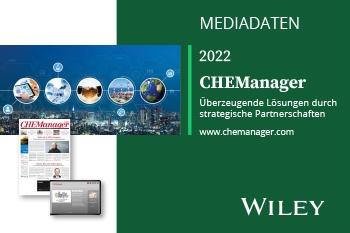Expert Interview: Alan Walker, Kaneka
The Coronavirus Crisis: Challenges and Opportunities for CMOs, CDMOs and CROs
The ongoing pandemic is putting pharmaceutical R&D strategies to the test and also challenging manufacturing planning and supply chain management. Particularly in this industry segment, the supply chain is global, complex and interconnected. Each link must be strong enough to ensure that the road from lab to final drug product is as smooth as possible, even under the most difficult circumstances.
In addition to the pandemic, the growing threat of a no-deal-Brexit amid old and new trade conflicts and increasing protectionism, is putting even more stress on companies operating in the pharma sector.
In cooperation with Wombat Capital, a cross-border investment bank, CHEManager asked executives and experts of CMOs, CDMOs and CROs operating in the pharmaceutical sector to share their opinion on current challenges for their industry and how these challenges may influence changes in their market.
What in your opinion and from your perspective are the main impacts of the coronavirus pandemic on the drug supply chains?
Alan Walker: It has forced buyers to initiate plans to mitigate risk of buying from overseas suppliers. Dual sourcing with a focus on local suppliers is a valid option.
Many Western CDMOs have already shifted operations back to the USA and Europe as intensive business activity in China has driven up labor costs. In addition, national policies, trade-related developments such as Brexit and the US-China dispute and impacts of pandemics are likely to require repatriation of at least part of the supply chain in many countries. Could CMOs/CDMOs be beneficiaries of restructured supply chains?
A. Walker: Of course, so long as they are located in countries where Western CDMO’s operate.
What do you think the impact of the repatriation of the drug supply chain will have on the M&A activity in the CMO/CDMO industry? Do you think that this would create an impact on valuations?
A. Walker: It brings credibility back to Western based CDMO business models and I think could lead to more acquisitions even from buyers in China, Korea, India etc. but at higher prices.
Has the inability to hold face-to-face meetings with prospective clients and conduct client visits to sites affected your new business development since the outbreak of the coronavirus pandemic?
A. Walker: Yes, although most customers are receptive and work well with virtual meetings.
EU regulatory authorities and the FDA have issued guidance on conducting clinical trials during the Covid-19 outbreak. Have you as a CMO/CDMO been affected by these changes?
A. Walker: No, since we are not directly involved in clinical trials. We could see some impact down the road as the guidance takes effect.
The race is on to develop treatments and vaccines against Covid-19, and so is the need to assure supply of these potential drugs and vaccines. Pharma companies are leveraging their internal manufacturing networks but also partnering with CMOs/CDMOs. What supply and manufacturing strategies/alliances are in play?
A. Walker: Anyone who has the capacity and technology to make vaccines, antibodies and small molecules aimed at Covid-19 are in play for the business with Pharma.
The CMO/CDMO industry has managed to support efforts to develop vaccines and therapeutics for Covid-19 despite already being at a high level of utilization. What made that possible?
A. Walker: The ability to work with flexible schedules and the priority placed on this by governments, regulators and customers.
“Emerging”, “virtual” and other small (bio)pharmaceutical companies are driving the discovery and development of new drugs but are mostly dependent on the availability of financing – which could become more restricted due to the economic downturn cause by the economic and epidemiologic disruptions to the global economy. As emerging biopharma companies are important customers of CMOs/CDMOs, how is this going to affect your business?
A. Walker: So far, no big impact. We are still seeing good projects from start-ups.
For the biopharma CMO/CDMO industry, the pandemic crisis has created great opportunities. What is your opinion on whether and to what degree the CDMO industry will enjoy long-term benefits from its role in tackling the current crisis?
A. Walker: It will work out project by project. As things settle down the successful projects will move forward. The pandemic has given the chance to CDMOs to build some new relationships. The success of the projects will determine how these play out.
This interview was conducted in cooperation with Wombat Capital, a cross-border investment bank providing mergers and acquisitions and strategic advisory services. With offices in New York and Paris, Wombat Capital focuses on the CDMO/CRO and pharma outsourcing sectors.












